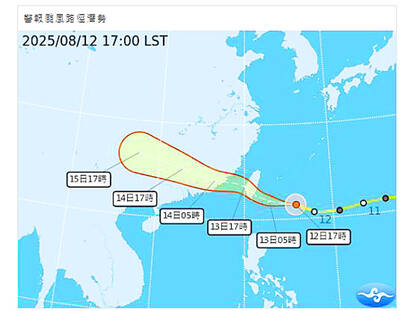Managing cross-strait relations will not be easy for the Chinese Nationalist Party (KMT) if it wins the 2008 presidential election, given the commitments it has made to the Chinese government, a former cross-strait affairs official said yesterday.
"Many of the commitments will actually be difficult to carry out even if the KMT gains power in 2008," said Chen Ming-tong (陳明通), a former vice-chairman of the Mainland Affairs Council (MAC), at a book release press conference.
"Cross-strait relations will only get worse as a result of its failure to fulfill the commitments," the official said.
"I was invited to Beijing early last month for an academic exchange. They said it seemed to them that [KMT Chairman] Ma Ying-jeou [馬英九] was still living in the anti-communist era. They said that Beijing won't give Ma an easy time handling cross-strait affairs," Chen said.
Ma is widely touted as the most likely candidate to represent the pan-blue camp -- the KMT and its political ally the People First Party -- in the 2008 presidential election.
Given that Ma might win the 2008 election and that he may not be as sympathetic to China as former KMT chairman Lien Chan (
"Lien's trip to China this year and the communique he signed with Chinese President Hu Jintao (
The communique outlined the common goals of the KMT and the Chinese Communist Party (CCP) for cross-strait policy, such as sticking to the "1992 consensus," which recognizes the "one China" principle, and opposing Taiwan's independence, among others.
While the CCP has been eager to realize the communique's principles, many Taiwanese oppose the parties' political goals, Chen said.
It might be easy for an opposition party to sign such a communique with China, but it will discover the consequences should it take the office, Chen said.
MAC Chairman Joseph Wu (

GET TO SAFETY: Authorities were scrambling to evacuate nearly 700 people in Hualien County to prepare for overflow from a natural dam formed by a previous typhoon Typhoon Podul yesterday intensified and accelerated as it neared Taiwan, with the impact expected to be felt overnight, the Central Weather Administration (CWA) said, while the Directorate-General of Personnel Administration announced that schools and government offices in most areas of southern and eastern Taiwan would be closed today. The affected regions are Tainan, Kaohsiung and Chiayi City, and Yunlin, Chiayi, Pingtung, Hualien and Taitung counties, as well as the outlying Penghu County. As of 10pm last night, the storm was about 370km east-southeast of Taitung County, moving west-northwest at 27kph, CWA data showed. With a radius of 120km, Podul is carrying maximum sustained

Tropical Storm Podul strengthened into a typhoon at 8pm yesterday, the Central Weather Administration (CWA) said, with a sea warning to be issued late last night or early this morning. As of 8pm, the typhoon was 1,020km east of Oluanpi (鵝鑾鼻), Taiwan’s southernmost tip, moving west at 23kph. The storm carried maximum sustained winds of 119kph and gusts reaching 155kph, the CWA said. Based on the tropical storm’s trajectory, a land warning could be issued any time from midday today, it added. CWA forecaster Chang Chun-yao (張竣堯) said Podul is a fast-moving storm that is forecast to bring its heaviest rainfall and strongest

TRAJECTORY: The severe tropical storm is predicted to be closest to Taiwan on Wednesday and Thursday, and would influence the nation to varying degrees, a forecaster said The Central Weather Administration (CWA) yesterday said it would likely issue a sea warning for Tropical Storm Podul tomorrow morning and a land warning that evening at the earliest. CWA forecaster Lin Ting-yi (林定宜) said the severe tropical storm is predicted to be closest to Taiwan on Wednesday and Thursday. As of 2pm yesterday, the storm was moving west at 21kph and packing sustained winds of 108kph and gusts of up to 136.8kph, the CWA said. Lin said that the tropical storm was about 1,710km east of Oluanpi (鵝鑾鼻), Taiwan’s southernmost tip, with two possible trajectories over the next one

TALKS CONTINUE: Although an agreement has not been reached with Washington, lowering the tariff from 32 percent to 20 percent is still progress, the vice premier said Taiwan would strive for a better US tariff rate in negotiations, with the goal being not just lowering the current 20-percent tariff rate, but also securing an exemption from tariff stacking, Vice Premier Cheng Li-chiun (鄭麗君) said yesterday. Cheng made the remarks at a news conference at the Executive Yuan explaining the new US tariffs and the government’s plans for supporting affected industries. US President Donald Trump on July 31 announced a new tariff rate of 20 percent on Taiwan’s exports to the US starting on Thursday last week, and the Office of Trade Negotiations on Friday confirmed that it